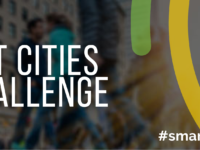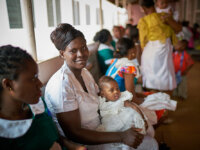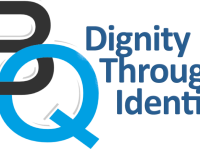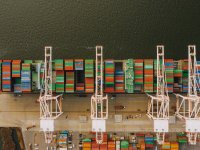The $800B events industry is antiquated. Huge gaps exist between cities and events. EQ is a mobile platform that streamlines traffic, navigation, crowd control, and security in real time around crowded environments while collecting critical data and analytics. Vasta will soon unveil this next-generation suite of event and venue planning services and digital simulation platform. The EQ Platform was made for cities of any size; public safety; citizens/visitors; fans/non-fans; and for organizers.
Innovation Tag: Cross-Sector Partnerships
The Commonwealth’s Climate Finance Access Hub supports small and vulnerable states to access sources of climate finance to meet their priority adaptation and mitigation needs and realise their sustainable development goals. The Hub helps countries to develop transformative projects required to access funds and support institutional capacity to deliver on climate finance.
The Smart Cities Challenge is a competition open to local governments across Canada. Launched in 2017 as the federal government’s first prize-based funding program, it invites communities to solve problems and improve quality of life for residents by leveraging connected technologies and data. The Challenge incentivizes communities to approach problem-solving in creative ways by working with residents, building partnerships, experimenting and taking risks.
Koldchain is the world's lowest-cost, patent-pending, GAVI-endorsed, solution based on thermosensitive polymers that leave distinct patterns upon exposure to temperature shifts. These patterns are interpreted by our smartphone algorithm to detect whether temperature fluctuations have damaged vaccines or other sensitive maternal health biotech products, and thus prevent infant & maternal mortality. The same tech applies to dairy, meat, and many other products where temperature affects quality.
TrueMed will change the brand protection market with modern AI based software approach for detecting originals and counterfeits around the world. TrueMed’s innovation is the next generation method for rapidly detecting goods, at any point of distribution, by customs or even consumers. It can be used by brand owners and authorities in global and cross-border collaborations. It is 100% non-additive, hence very cost-effective, agile, and capable of being adopted to different use cases.
The Co-Innovate initiative, led by InterTradeIreland and supported by the European Union's INTERREG VA Programme, managed by the Special EU Programmes Body (SEUPB), has provided financing to a cross-border group of 18 companies (headed by Northern Irish company Shnuggle), to help them produce thousands of low-cost, quality face shields for front-line workers during the COVID-19 crisis.
BanQu is the first ever blockchain-based (patented) Supply Chain & Economic Passport platform that enables transparency, traceability, equity and sustainability for farmers (especially women), workers, waste pickers living in extreme poverty. BanQu has also become the leading platform for ensuring COVID-19 supplies are reaching the most vulnerable nations and communities in the MENA region. BanQu is being used in 40+ countries across over 1 million last-mile-first-mile beneficiaries today.
The Reducing Friction in Trade (RFIT) project was initiated in March 2019 as a proof of concept to establish how blockchain distributed ledger technology and associated technologies can be used to seamlessly integrate supply chain data with HM Revenue & Customs and the Food Standards Agency’s systems. The project intends to do so by guaranteeing the timeliness and provenance of critical data and avoiding the need for discrete declarations.
Six European partners are collaborating in the framework of the Interreg Europe Program for the implementation of DIALOG. The project has the objective of improving the effectiveness of innovative policies for regional competitiveness through the involvement of local stakeholders and citizens in policy and decision making processes. This involvement will be crucial to address common needs and face mid- and long-term challenges related to sustainable territorial development.
Case Study
Cross-KIC Circular Economy in the Western Balkans: Systems and stakeholders mapping for policy…
Better ecosystem understanding is needed in the Western Balkans where governments face the challenge of aligning with the European Green Deal and Circular Economy amid EU enlargement discussions. This project implements an innovation policy for sustainable growth by introducing tools for territorial analysis to support development policies. It is the first regional effort of this kind, positioning existing circular economy challenge owners in a system viewpoint as part of a co-creation process.







